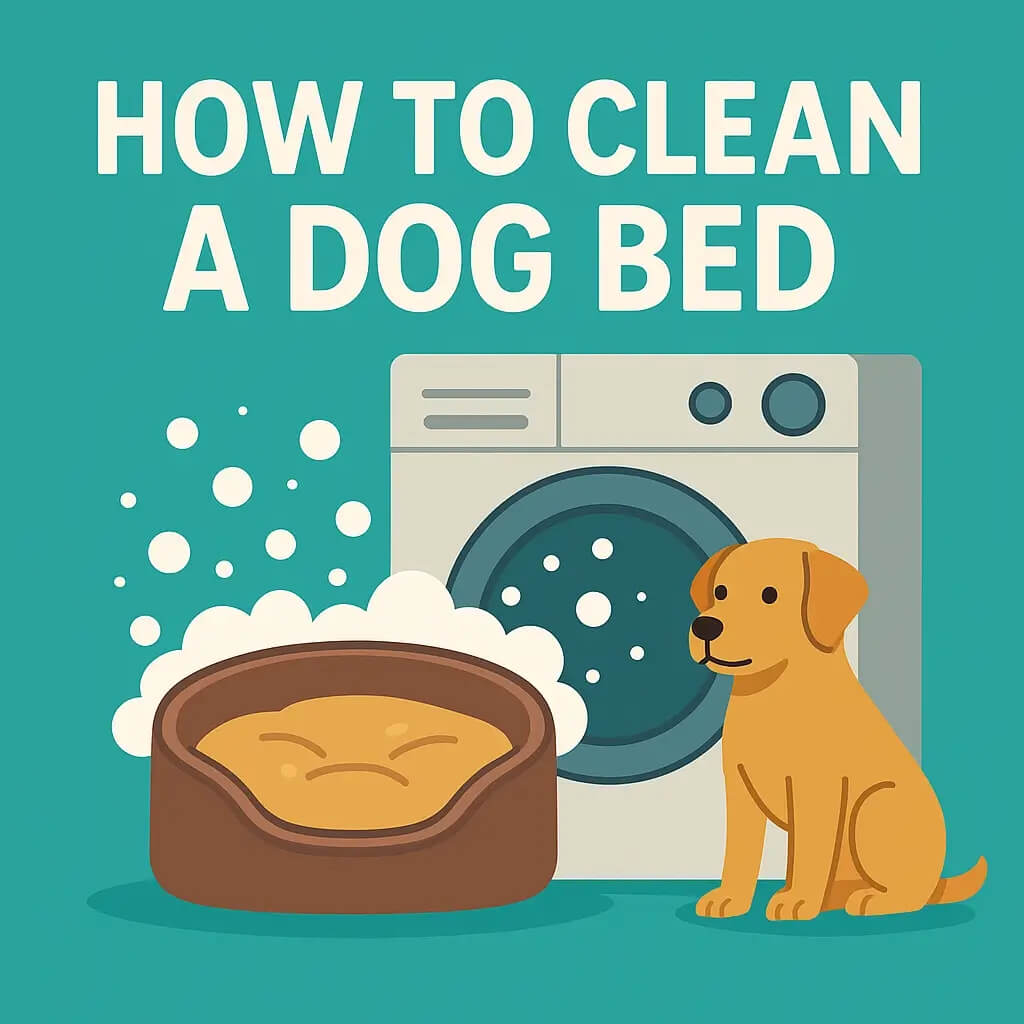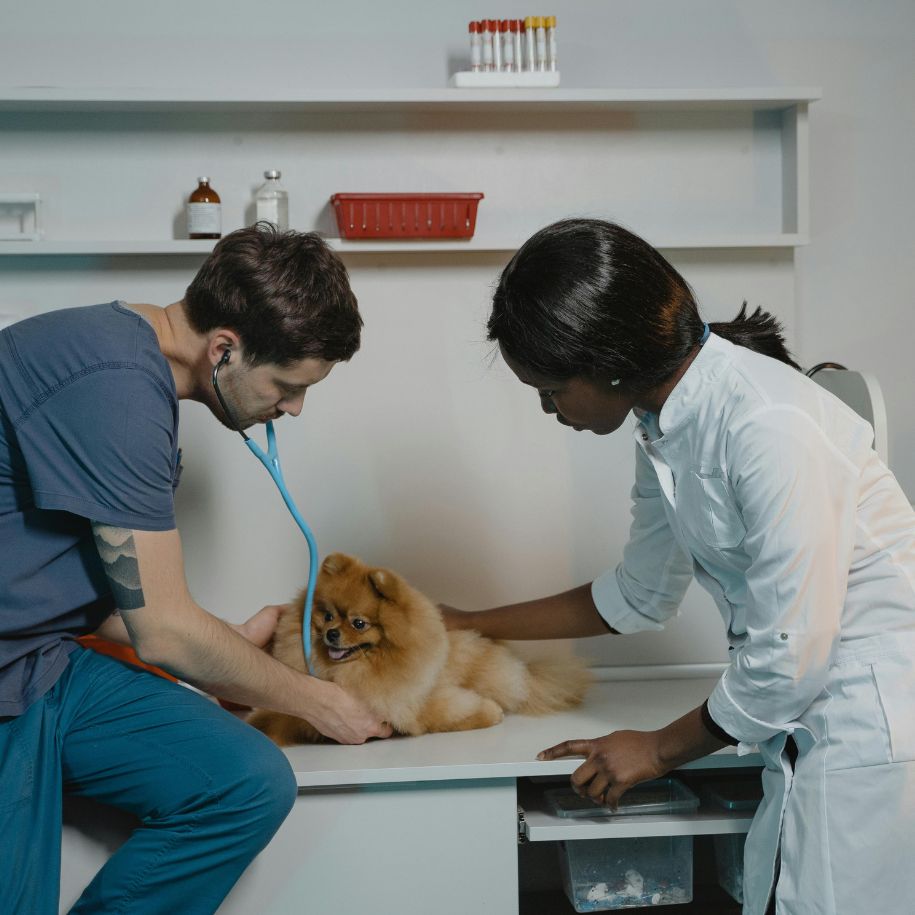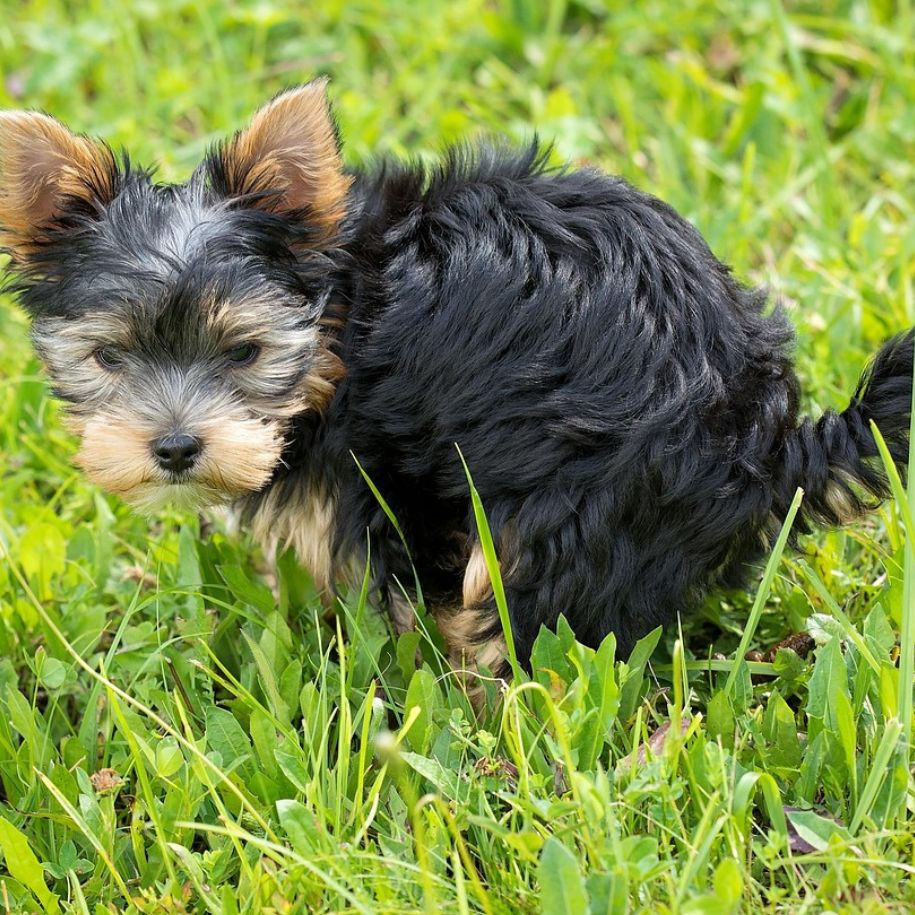Have you ever been relaxing on the couch when your dog suddenly leans in and starts licking your ears? It might seem weird—or even a little gross—but to your furry friend, it’s totally natural!
Dogs lick ears for many reasons: it can be a sign of affection, a throwback to their wild instincts as pack animals, or simply because they love the salty taste. Sometimes, it’s also a way for them to comfort themselves or grab your attention. Plus, certain breeds and personalities may be more prone to this quirky behavior.
In this guide, we'll dive into why dogs like to lick ears (both human and canine), when it’s harmless fun and part of normal dog behavior, and when it could point to an underlying medical issue. We’ll also share simple, vet-approved tips to manage this behavior while keeping your bond with your dog strong. Let’s find out what’s really going on behind those sweet (and slobbery) kisses!
The Natural Instinct Behind Ear-Licking
Pack Grooming and Social Bonding
In the wild, wolves and other pack animals engage in mutual grooming to strengthen their social bonds. It's a sign of trust, love, and respect among pack members. Your dog’s ear-licking habit is often just their way of showing you that you're part of their "pack" — and that they care about you deeply.
Taste and Chemistry
Believe it or not, your ears might taste like a little snack to your dog! The natural oils, salt from sweat, and even tiny bits of ear wax can be very appealing. Many dogs are naturally curious about different smells and flavors, and your ears offer a unique "treat" they can’t resist.
Self-Soothing and Dopamine Release
Licking triggers the release of feel-good hormones like dopamine in a dog’s brain. For many pups, licking your ears provides a calming, comforting feeling, especially when they’re feeling a little anxious or bored. If your dog tends to lick when alone, restless, or stressed, they might be using it as a way to self-soothe or communicate their emotions.
When Ear-Licking Is a Red Flag
While occasional ear licking is usually innocent, there are times when it could signal a problem you shouldn't ignore.
Health Risks and Warning Signs
If your dog is fixated on licking another dog's ears or your own, it could be because they smell an underlying problem. Dogs have an incredible sense of smell and can sometimes detect infections before we even notice symptoms. If the ear being licked smells bad, looks red, or has discharge, it’s a good idea to check with a veterinarian for advice.
Excessive licking can also spread bacteria, and dogs' mouths can transfer germs that aren't safe for humans. Especially if you have open cuts, an existing ear infection, or a weakened immune system, licking your ears could lead to a medical issue.
Compulsive Behavior Indicators
Sometimes, licking becomes more than a casual grooming behavior. Obsessive licking, or compulsive licking, can be a sign of anxiety, boredom, or even underlying pain. Watch for signs like constant licking, ignoring interactive toys, trouble settling down, or licking to the point of causing irritation.
If obsessive licking is happening regularly, it’s time to speak to your vet. Early detection of compulsive behavior can lead to easier solutions through training and enrichment.
Is It Safe to Let Your Dog Lick Your Ears?
Letting your dog lick your ears might feel like a sweet bonding moment, but it's important to know the risks involved. While many dogs engage in occasional ear licking, too much of it can create problems.
Understanding Dog Saliva and Human Health
Dog saliva contains bacteria that can sometimes cause infections, especially when it comes into contact with sensitive areas like the ears. According to the Centers for Disease Control and Prevention (CDC), dog saliva can carry bacteria like Capnocytophaga that could be harmful to people with weakened immune systems.
Dogs use licking as a way to communicate and show affection, but a dog licking your ears regularly can expose you to germs you may not expect.
Risks of the Dog Ear Licking Habit
Even healthy dogs carry germs that could cause mild to serious infections. Excessive moisture from constant licking creates an ideal environment for bacteria or yeast to grow, especially in the warm folds of the ear canal. In older dogs or puppies, this can quickly escalate into an ear infection requiring veterinary care.
Should You Stop Your Dog from Licking Ears?
If your dog's behavior includes only occasional ear licking and you’re healthy, you might not need to panic. But if you notice redness, discomfort, obsessive licking, or other signs of irritation, it’s smart to step in. Using positive reinforcement like treats and praise when your dog stops licking can help redirect their energy.
In short, occasional licking isn't the end of the world, but keeping your dog's behavior in check protects both your health and theirs.
How to Gently Stop a Dog from Licking Ears
If you’ve decided it’s time to curb your dog’s ear-licking habit, don’t worry—there are plenty of positive ways to help!
Positive-Interrupt Commands
Training your dog with commands like "Leave it," "No lick," or "Off" can make a big difference. Start by rewarding your dog when they obey, using treats, toys, or praise. Positive reinforcement will make it easier for your dog to understand that licking your ears is off-limits.
Redirect and Enrich
Dogs often lick because they’re bored or seeking attention. Offering them interactive toys, chew bones, or puzzle games can help redirect their energy. Keeping your dog mentally and physically stimulated helps prevent compulsive licking and other quirky behaviors.
Reduce Triggers
Sometimes, your dog’s habit is reinforced by easy access to salty smells or tastes. Keeping your ears clean and maintaining good hygiene reduces the temptation. Understanding your dog's body language, such as signs of stress or boredom, also allows you to act before licking starts.
Ear Hygiene Tips for Healthy Pups and People
Maintaining good hygiene is an important part of preventing your dog from developing a strong ear licking habit.
Regular Ear Cleaning for Dogs
Regular ear checks and cleaning are essential for your dog's health. Many dogs are prone to ear infections, especially breeds with floppy ears. Use a vet-approved ear cleaner and soft cotton pads to gently clean your dog's ears weekly.
Keeping Your Own Ears Clean
By maintaining your own ear hygiene, you remove the salty, tasty incentive for your dog. Washing your ears daily is a simple way to discourage licking and protect against germs.
Watch for Signs of Trouble
If you notice redness, swelling, discharge, or a bad smell from either your ears or your dog's, seek veterinary or medical advice immediately. Early detection can prevent a painful infection from developing.
Breed and Personality Factors
Besides habits and hygiene, your dog's breed and individual personality also influence how likely they are to engage in ear licking.
Velcro Breeds
Breeds like Labrador Retrievers, Golden Retrievers, and Cocker Spaniels—often known as "Velcro dogs"—tend to be especially affectionate and may show it through behaviors like licking ears or other parts of their owners' bodies.
Working and Herding Breeds
Dogs originally bred for work, such as Border Collies, Australian Shepherds, and German Shepherds, often need a lot of stimulation. Without enough mental and physical exercise, these smart dogs might turn to licking your ears or other quirky behaviors.
Individual Personality Matters
Regardless of breed, every dog has its own quirks. Submissive dogs might lick as a sign of respect or affection, while others do it because it simply feels good. Understanding your dog's unique communication style will help you respond appropriately.
Frequently Asked Questions
Why does my dog lick my ears at night?
Dogs may lick your ears at night to bond or comfort themselves. The quiet and calm environment often makes them feel more affectionate.
Can dog saliva cause ear infections?
Yes, dog saliva can introduce harmful bacteria into the ear canal, leading to infections, especially if there’s already a scratch or minor injury.
Why does my dog lick other dogs’ ears at the park?
Licking other’s ears is a form of mutual grooming and social bonding. It can also be a way for submissive dogs to show respect to other dogs.
How can I train my dog to stop licking my baby’s ears?
Use positive training techniques like redirecting their attention with toys or treats. Commands like "Leave it" paired with praise and rewards can help your dog learn that licking is not the best way to show affection.
Should I see a vet if my dog suddenly starts excessive ear-licking?
Yes, a sudden increase in licking behavior could be a sign of an underlying medical issue, such as pain, infection, or allergies.
Conclusion
Ear-licking is just one of the many quirky ways dogs show affection, communicate, and engage with their humans. While often harmless, it’s important to recognize when this common behavior could signal a deeper underlying problem. By staying attentive to your dog's body language, practicing good hygiene, and using positive reinforcement, you can manage occasional ear licking before it becomes excessive.
With proper hygiene, positive training, and plenty of love, you and your dog can continue to share happy, slobber-free moments together!












